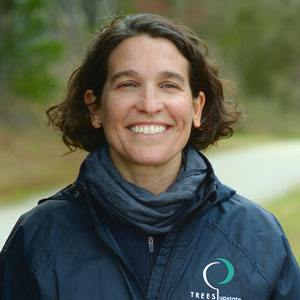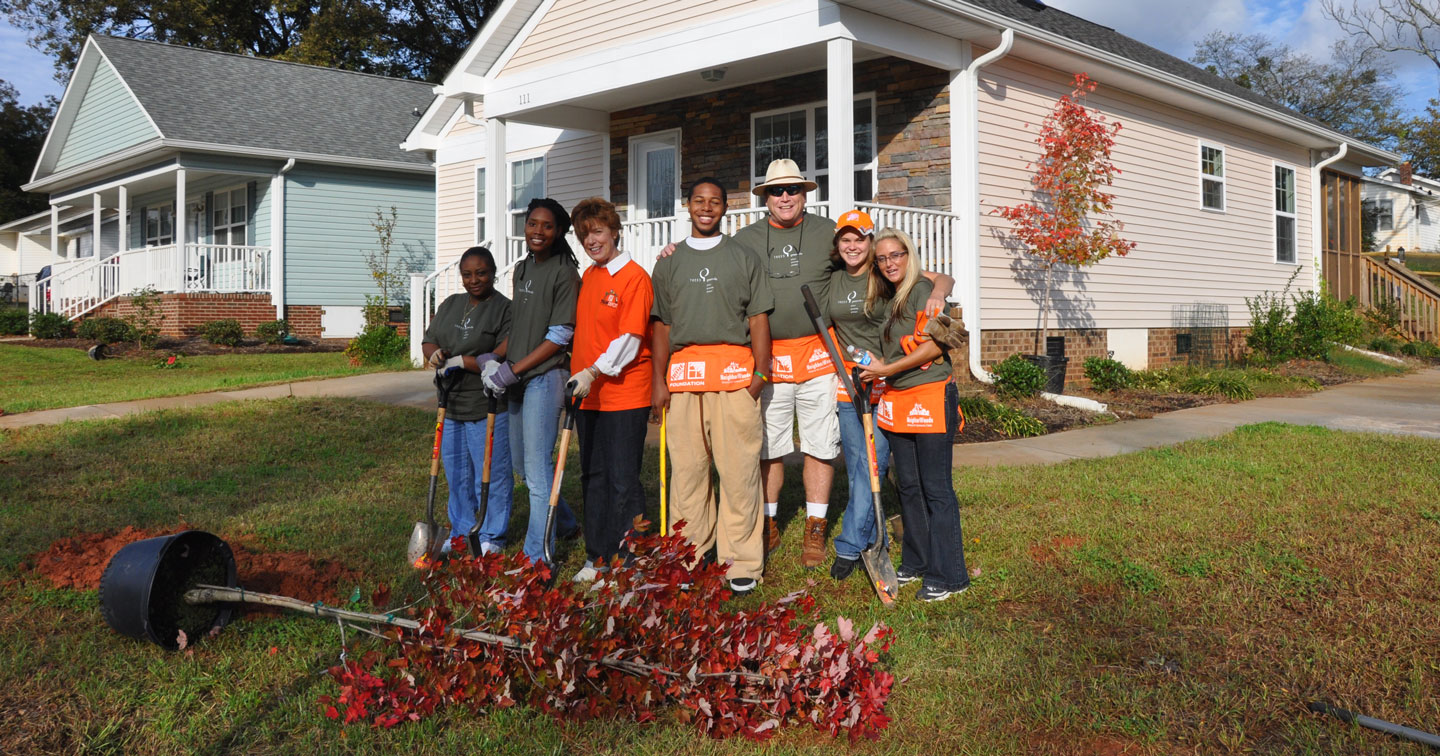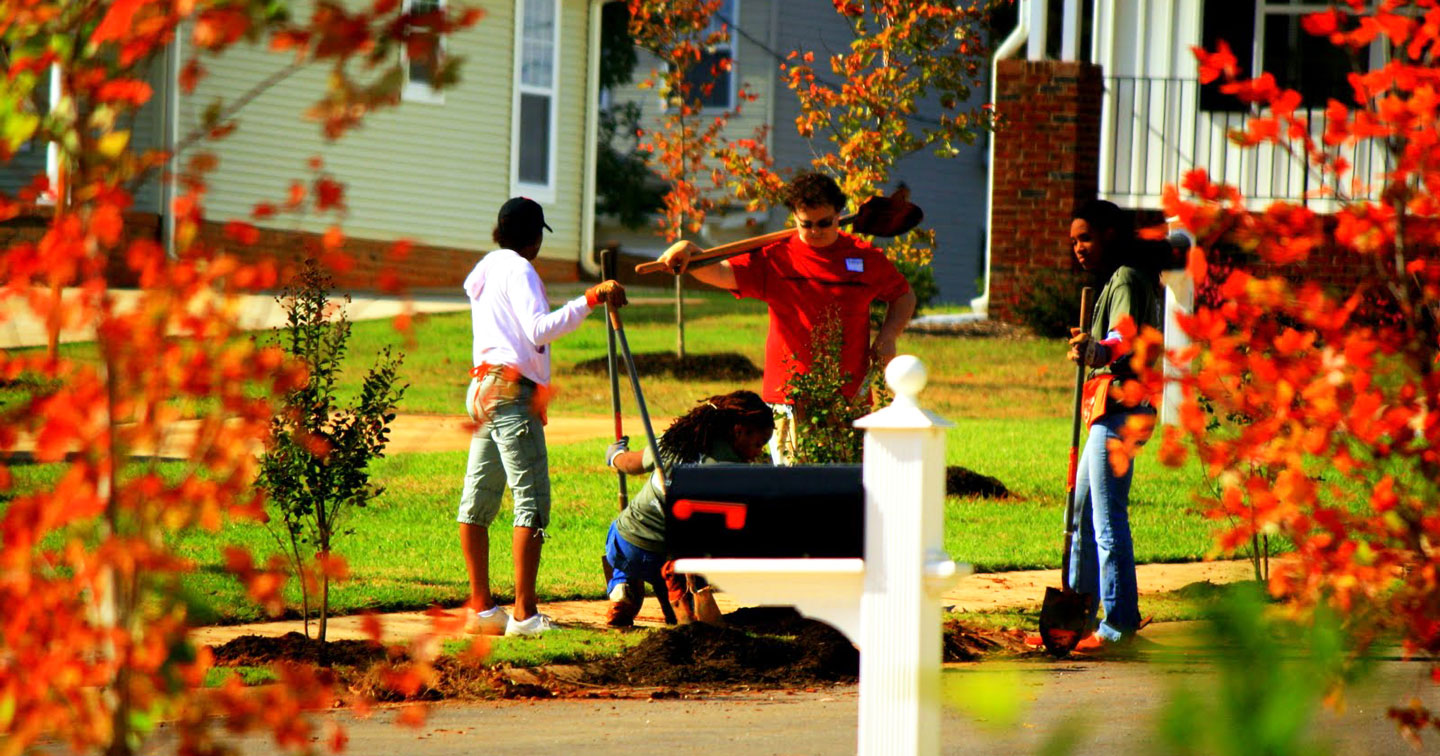Creating a more equitable tree canopy
November 25th, 2021
By Joelle Teachey
This article was originally published in the Fall/Winter 2021-2022 issue of the Upstate Advocate, Upstate Forever's twice-yearly publication. To read a digital copy of the complete publication, please click here.
 Recent tree canopy maps produced by the Green Infrastructure Center show a direct correlation between tree canopy, income level, and land surface temperatures in the City of Greenville. Joelle Teachey of TreesUpstate offers a perspective on the many benefits of trees, and why it's important to address the tree deficits of less affluent communities.
Recent tree canopy maps produced by the Green Infrastructure Center show a direct correlation between tree canopy, income level, and land surface temperatures in the City of Greenville. Joelle Teachey of TreesUpstate offers a perspective on the many benefits of trees, and why it's important to address the tree deficits of less affluent communities.
For many of us, planting trees is a natural thing to do. We want beautiful yards, more birds, and more shade. Some of us have cultivated urban nature oases where we weary city dwellers can find much needed rest and solace before our next venture into town. If we are very dedicated or fortunate to have land, we may have even created a backyard ecosystem that plays a role in restoring the natural environment.
While a small number of people may plant trees just to keep up with the neighbors or show-off, the vast majority of us love it when our nearby neighbors and our communities have more large and vibrant trees. Trees are sources of pride and make cities more livable by providing important public health, mental health, social, environmental and economic benefits.

Yet, if you’ve ever paid a landscaper, arborist, or a nursery, you also know that healthy trees can come at a hefty financial cost — including planting, maintenance, watering, leaf blowing, pruning, pest control, and removal. It’s no wonder that there are more trees in more affluent communities — not because we don’t want others to have the same trees — but because of lack of resources and other complex social and economic reasons. That is why TreesUpstate is a nonprofit committed to tree equity and works closely with Upstate Forever and other problem-solving organizations who tackle a host of issues such as affordable housing, transportation, clean air, clean water and economic development.
Decades of peer-reviewed research show that trees have enormous benefits for everyone in a community. Unfortunately, the opposite is also true. Low tree canopy is directly linked to an increase in social, health, education, transportation and public safety issues. But trees can also save money in both the short and long term. Trees lower heating and cooling costs. Trees can decrease heat-related emergencies and are known to reduce the temperature of an area by an average of 10°F (and, in some places, as much as 45°F)! Poor air quality is carcinogenic and linked to cardiovascular and lung diseases and disorders. Add bad air to at-risk areas with lower access to health care, and it’s easy to see why tree inequity demands the attention of leaders and advocates like you.

TreesUpstate launched our tree equity program in 2008 in partnership with the Greenville County Redevelopment Authority. Since then, we have planted over 10,000 trees with an emphasis on underserved parks, schools, and neighborhoods with little to no existing canopy. Every tree we plant is mapped so we can track and analyze their health and survival rate. The cumulative 25-year benefits of the trees we’ve planted is valued at over $5 million dollars. That amount will only grow as our trees reach 50, 75, and 100 years old and as we plant more trees.
But even if a tree is planted, that doesn’t guarantee its long-term survival. Improperly planted trees require more maintenance, are more prone to pests and diseases, and have shorter life expectancies. We can avoid unnecessary and burdensome tree care costs in affordable housing communities through sound policy, enforcement, and by making sure the right people are involved in the process of planning and planting. I’ve seen way too many developer promises, only to find out ten years later that the frontline landscaper was ignoring rules, being lazy, or covering up catastrophic mistakes.
As a fellow advocate of our Upstate’s natural resources, I know that you understand our challenges. But I’m also hopeful for the future. Trees have a way of crossing the political divide, uniting, and restoring communities. They really are amazing. So, who wants to plant some equitable trees together?
ABOUT THE AUTHOR
Joelle Teachey is the Executive Director of TreesUpstate. She is an ISA Certified Arborist and a SC Certified Landscape Professional. Visit TreesUpstate.org for more information.

